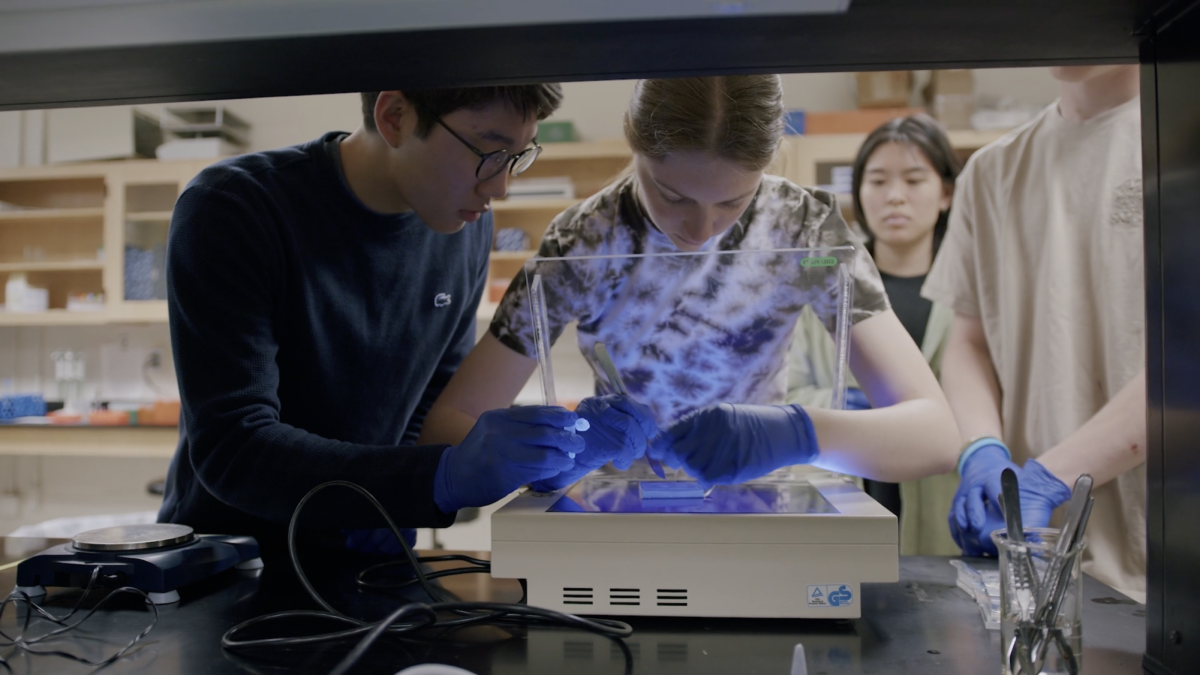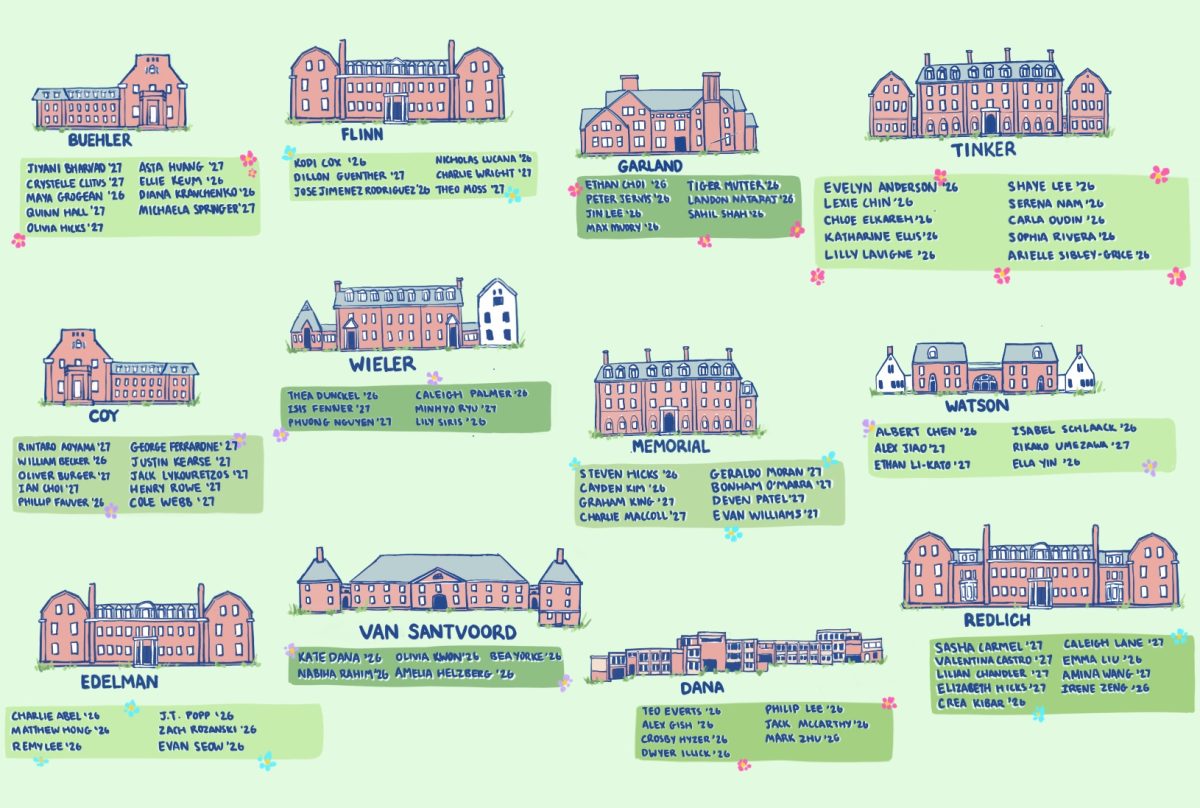“Honors Scientific Research: Drosophila Melanogaster” (BI490Y), affectionately known as “the Fruit Fly course,” is an upper-level elective in the science department open to Upper Mids and Seniors. The course is part of the Stan-X initiative, a research program led by Dr. Sung Kim at Stanford University.
Dr. Kim’s laboratory researches insulin production and metabolism using fruit flies as model organisms. The class at the school involves generating variant fruit fly strains through genetic manipulation. Depending on the randomness of that manipulation, students potentially create new strains of fruit flies.
New fruit fly strains created in the class are sent to Stanford University and the Drosophila Melanogaster Stock Center run by Indiana University Bloomington. These strains can have novel characteristics useful to the research of various human diseases.
Another unique aspect of the class is that students have the opportunity to collaborate with students from other Stan-X partnering schools, including Phillips Exeter Academy and the University of Oxford. The schools share data throughout the year and gather at a conference in the spring to discuss and present their work.
Mr. Paul Oberto, instructor in biology and chemistry, said, “The work of the students is tied to an ongoing project with a large consortium of schools. It’s contributing to a larger body of impressive research.”
Prerequisites for the course include a year of Honors Biology and a year of Chemistry. Mr. Oberto said, “You can come in without any formal research experience, but it moves pretty quickly. The course requires a high degree of precision in laboratory work. We want to generate quality data, so we can share it with the other research labs.”
The course enables students to conduct advanced college-level research. Mr. Oberto said, “You’re generating novel data, and you don’t know what it’s going to look like. Not all of your results will look like what you think they should. That leads to more questions and more work, and, so far, more answers.”
Due to the course’s popularity, there will be a formal application process for admission to the class in the 2024-2025 school year. Mr. Oberto said, “We want to ensure that we are allowing students with a strong background and interest the opportunity to be in the course.”






